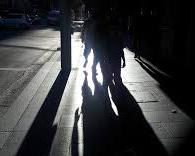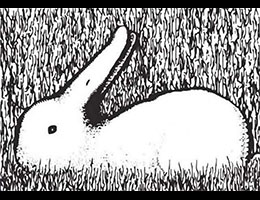 The dictionary of the Royal Spanish Academy ( RAE ) mentions the term delusion as a synonym for illusion : an image or idea that a person constructs in their mind, without correspondence with reality.
The dictionary of the Royal Spanish Academy ( RAE ) mentions the term delusion as a synonym for illusion : an image or idea that a person constructs in their mind, without correspondence with reality.
For example: “The businessman's political project is based on a delusion” , “Many people live with a delusion of security” , “When you make decisions on impulse, it is common that you later face a delusion” .
The etymological origin of delusion is found in the English language. Although the notion is usually understood as illusion , specifically it refers to that which is delusional or illusory . Delusion, in this sense, implies a deformation of what is real based on an erroneous perception.
Continuing with this line of thought, a delusion can be a perceptual mistake , but also a conceptual one . Suppose a child is alone in his room on a stormy night. Frightened, he believes that the shadows on the furniture are ghosts and that the noises of the wind blowing are screams. The little boy, therefore, has a delusion: he distorts reality based on the beliefs he forges during the night.
Another way of understanding delusion is as an idea that, despite objective data demonstrating its falsehood, offers resistance to change. Therefore it remains anchored in the subject.
It is important to keep in mind that the notion of delusion presents similarities with concepts such as delirium and hallucination . Numerous psychologists have reflected on these terms and made theoretical contributions of great conceptual complexity.
In order to affirm that delusion is a distorted perception of reality, we must be faced with a distortion caused by the senses. There are numerous drawings used by psychologists and psychiatrists to evaluate the perception of their patients, where ambiguous figures are presented, such as a painting in which there may be both a rabbit and a duck, or another in which there appears to be a vase or two human faces facing each other.
 Delirium is closely linked to delusion when the individual narrates his reality in a fantastic way, based on a clear distortion of what he perceives around him. Unlike a mere sensory illusion, which can last a short time, this phenomenon is characterized by the presence of sophisticated elements that amalgamate into a construction of greater complexity.
Delirium is closely linked to delusion when the individual narrates his reality in a fantastic way, based on a clear distortion of what he perceives around him. Unlike a mere sensory illusion, which can last a short time, this phenomenon is characterized by the presence of sophisticated elements that amalgamate into a construction of greater complexity.
To differentiate illusion from hallucination, we can say that in the latter there is no physical support that can be perceived, while in the former a deformation is generated that makes perception ambiguous (if we think about the aforementioned images, the same subject could see both figures alternately, without consistency). The idea of threatening shadows when we feel fear also comes into play here.
The philosopher and psychologist Elías Manuel Capriles Arias, born in Venezuela in 1948, relies on the Sanskrit term avidya , used in Buddhism, to delve deeper into the definition of delusion . A fairly approximate translation of it would be " ignorance , ignorance", two words that are opposed to "wisdom, knowledge." In this specific case, we can think of a lack of knowledge of the world around us, but also of our interior.
Delusion, therefore, can be understood as a " confusion ", as a "perceptual, cognitive or conceptual error." A good example of the way in which the delusional manifests itself in front of us as something corporeal is the phenomenon known as autoscopy , which takes place when the subject sees his own body from outside while sleeping, believing he is awake. It is associated with a state of extreme fatigue, lack of sleep, fear or also the consumption of certain narcotics.
